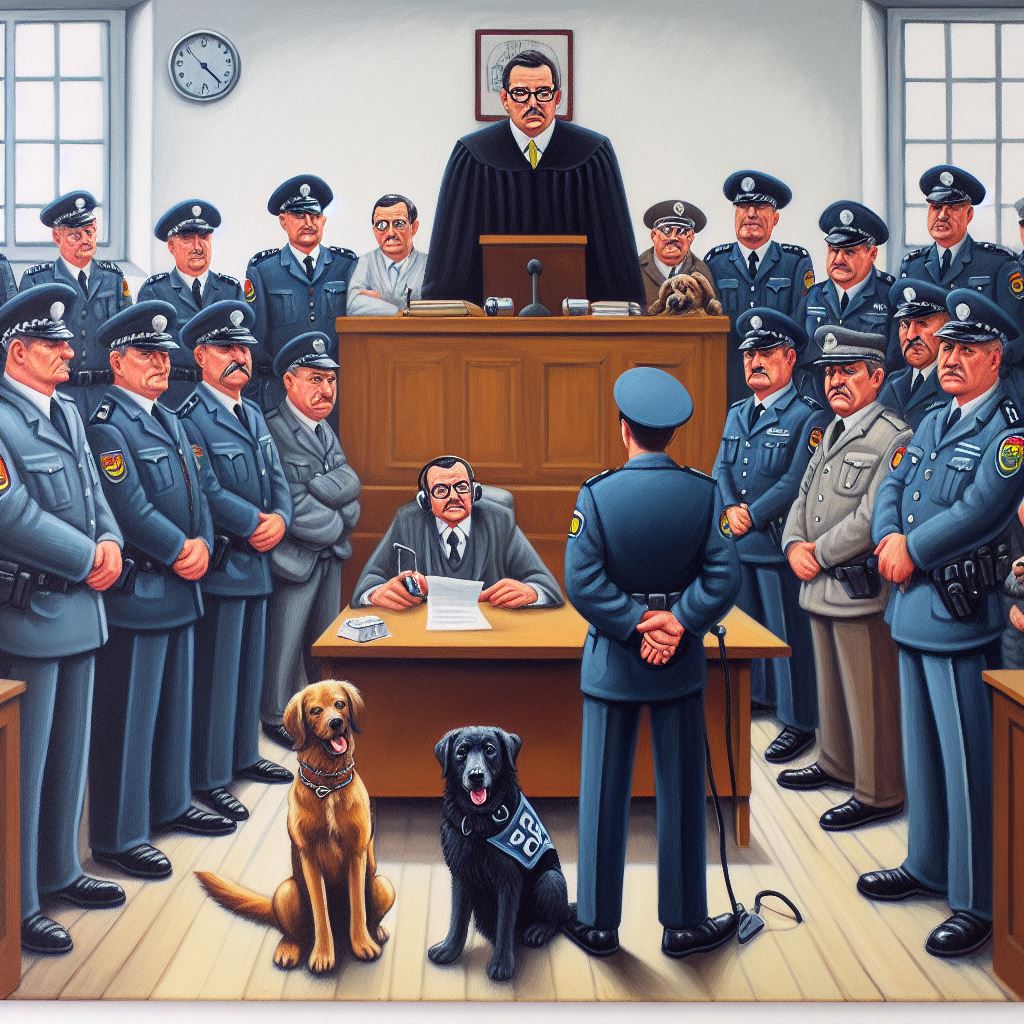How Often Do Cops Show Up for Traffic Court?
Traffic court is a crucial aspect of the legal system, especially for individuals dealing with traffic citations. Understanding the dynamics of this process, including the role of law enforcement, can significantly impact the outcomes of cases. In this article, we will delve into the frequency with which police officers show up for traffic court and the various factors influencing their attendance.
Introduction
Navigating the complexities of traffic court can be a daunting task for individuals facing citations. The presence of police officers during these proceedings adds another layer of intricacy. It is essential to comprehend the dynamics of why and how often cops show up for traffic court, as this knowledge can significantly affect the legal outcomes for those involved.
Understanding Traffic Citations
Before delving into the presence of police in traffic court, it’s crucial to grasp the basics of traffic citations. These documents, issued by law enforcement officers, allege a violation of traffic laws. Once received, individuals must respond by either paying the fine or contesting the citation in court. This sets the stage for the involvement of police officers in the legal process.
Role of Police in Traffic Court
The role of police officers in traffic court is multifaceted. They may be required to provide testimony regarding the circumstances leading to the citation. However, it’s not a universal rule that officers must appear for every case. Various factors influence their attendance, creating a dynamic scenario within the legal proceedings.
Mandatory Court Appearances for Police
In some instances, officers are mandated to appear in court. This often occurs when the violation is severe, such as in cases involving accidents, DUIs, or other significant traffic offenses. The presence of the officer becomes crucial for presenting evidence and ensuring a fair trial.
Traffic Court Procedures
Understanding the procedures of traffic court is vital in comprehending the nuances of police attendance. The court is presided over by a judge, and legal representatives may be present to argue the case. The judge’s role is to evaluate the evidence and determine the appropriate course of action.
Frequency of Police Attendance
The frequency with which police officers attend traffic court can vary widely. Statistics indicate that, on average, officers may not appear for every case. This variance can be influenced by factors such as the severity of the offense, the region, and the specific circumstances of each case.
Alternatives to Police Presence
In cases where officers do not attend, alternatives are in place to ensure a fair trial. This may involve the use of dashcam footage, eyewitness testimonies, or other evidence to establish the facts surrounding the citation. Understanding these alternatives is crucial for individuals contesting traffic violations.
Challenges Faced by Officers in Court
Police officers may face challenges that impact their ability to attend every court proceeding. Legal constraints, such as scheduling conflicts or workload issues, can prevent officers from being present. Recognizing these challenges adds a layer of understanding to the dynamics of traffic court.
Public Perception and Confidence
The presence or absence of police officers in traffic court can significantly influence public perception and confidence in the legal system. The public often views the involvement of law enforcement as a measure of the system’s integrity. Understanding these perceptions is vital for policymakers and law enforcement agencies.
Legal Ramifications for Non-Attendance
While officers may not always attend traffic court, there are legal ramifications for their non-attendance. Failure to appear may result in consequences for the officer, including disciplinary actions or legal repercussions. However, there are exceptions and loopholes in the system that officers may exploit.
Traffic Court Reform Efforts
Efforts are underway to reform traffic court procedures and improve efficiency. Technological advancements, such as virtual court hearings, aim to streamline the process and reduce the burden on law enforcement. These reforms seek to create a more accessible and fair legal system.
Community Engagement and Awareness
Building community engagement and awareness about traffic court procedures is crucial. Educating the public on what to expect and how the legal system operates fosters transparency and trust. This proactive approach can contribute to a more informed and cooperative relationship between the public and law enforcement.
The Role of Lawyers in Traffic Court
Legal representation plays a significant role in traffic court outcomes. Defense attorneys employ various strategies to challenge citations and advocate for their clients. Understanding how lawyers navigate the legal landscape sheds light on the intricacies of traffic court.
Tips for Navigating Traffic Court
For individuals facing traffic court, navigating the legal process can be overwhelming. Knowing what to expect, understanding the available options, and being prepared for different scenarios are crucial aspects of a successful defense. This section provides practical tips for those appearing in traffic court.
Conclusion
In conclusion, the frequency with which cops show up for traffic court is a nuanced aspect of the legal system. Understanding the factors influencing their attendance, the alternatives in place, and the legal ramifications adds depth to one’s knowledge of traffic court proceedings. As the legal landscape continues to evolve, staying informed and engaged becomes increasingly important for all parties involved.
Frequently Asked Questions (FAQs)
- Q: Can I request a police officer to attend my traffic court case?
- A: Generally, the decision to request a police officer’s attendance is not within the control of the individual facing the citation. It depends on the nature of the offense and local regulations.
- Q: What happens if a police officer doesn’t show up for my traffic court case?
- A: If the officer fails to appear, the court may proceed with the available evidence. However, the specific outcomes can vary based on jurisdiction and the circumstances of the case.
- Q: How can I find out if a police officer will be present for my traffic court date?
- A: Contacting the court or seeking legal advice from an attorney can provide information about the likelihood of a police officer attending your specific case.
- Q: Are there instances where police presence is not required in traffic court?
- A: Yes, for less severe offenses or cases with substantial evidence, officers may not be mandated to attend. The decision depends on the local legal framework.
- Q: Can I dispute a traffic citation without the presence of a police officer?
- A: Yes, individuals can dispute a traffic citation even if the officer does not appear. Courts consider alternative evidence and testimony to make informed decisions.







